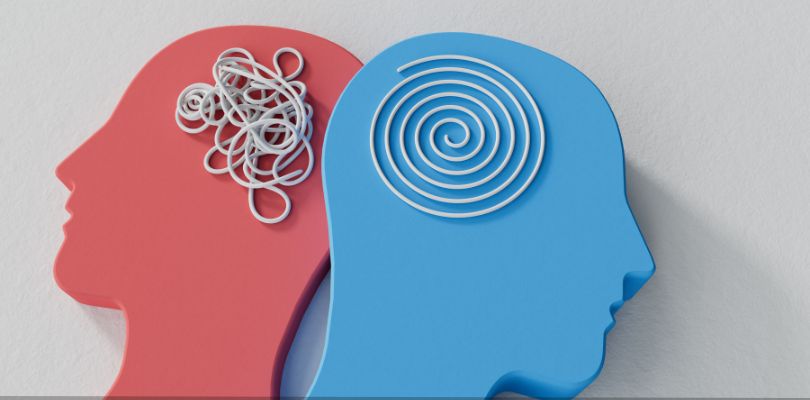Cracking the TD Code
Tardive dyskinesia (TD) is a neurological disorder characterized by involuntary, repetitive movements. It can negatively impact brain health and memory loss. Understanding TD is crucial for managing its symptoms and minimizing its impact on daily life. This article explores the signs of tardive dyskinesia, dietary strategies that may help alleviate symptoms and the medications that can increase the risk of developing this condition.
Drinks that Worsen Brain Health and Your Memory
- Alcohol.
- Sugary sodas.
- Energy drinks.
- Caffeinated beverages.
- Artificially sweetened drinks.
- High-fructose corn syrup drinks.
- Processed fruit juices.
- High-sodium vegetable juices.
- Highly acidic drinks.
- Full-fat dairy milk.
This article will be looking at the effects of alcohol on your body. Read on to learn about some of the worst ones.
Drinks that Can Worsen TD
1. Alcohol
Impact on TD: Alcohol can worsen tardive dyskinesia (TD) by affecting the central nervous system and exacerbating involuntary movements. It can also interfere with medications used to manage TD, reducing their effectiveness.
Why to avoid: Alcohol consumption can lead to dehydration and impair liver function, which is critical for metabolizing medications. Additionally, alcohol can increase anxiety and stress, potentially intensifying TD symptoms.
2. Caffeinated Beverages (Coffee, Energy Drinks)
Impact on TD: Caffeine is a stimulant that can heighten nervous system activity, potentially worsening the involuntary movements associated with TD.
Why to avoid: Caffeine can increase anxiety, restlessness and muscle tension, which may exacerbate TD symptoms. It can also interfere with sleep, which is crucial for overall health and managing neurological conditions.
3. Sugary Sodas
Impact on TD: High sugar content in sodas can lead to fluctuations in blood sugar levels, which can affect mood and energy levels, potentially worsening TD symptoms.
Why to avoid: Excessive sugar intake can contribute to inflammation and oxidative stress, which are detrimental to neurological health. Additionally, sugar can cause weight gain, which may increase the burden on the body and worsen symptoms.
4. Artificially Sweetened Drinks
Impact on TD: Some artificial sweeteners, like aspartame, can have neurological effects and may exacerbate symptoms in some individuals with TD.
Why to avoid: Artificial sweeteners can cause a range of side effects, including headaches, mood swings and neurological disturbances. They may also disrupt gut health, which can have indirect effects on brain function.
5. High-Sodium Vegetable Juices
Impact on TD: High sodium intake can lead to increased blood pressure and fluid retention, which may exacerbate certain symptoms of TD.
Why to avoid: Consuming too much sodium can strain the cardiovascular system and potentially affect blood flow to the brain. This can worsen neurological conditions and overall health.
6. Certain Herbal Teas (e.g., Those Containing Stimulants)
Impact on TD: Herbal teas containing stimulants, such as ginseng or guarana, can increase nervous system activity and exacerbate TD symptoms.
Why to avoid: Stimulants in herbal teas can increase anxiety, restlessness and involuntary movements. It is important to choose herbal teas that have calming properties instead.
7. Highly Acidic Drinks (e.g., Citrus Juices)
Impact on TD: Highly acidic drinks can irritate the digestive system and may interfere with the absorption of medications used to treat TD.
Why to avoid: Acidic drinks can lead to gastrointestinal discomfort and may exacerbate conditions like acid reflux, which can indirectly affect TD symptoms. They can also interfere with medication efficacy.
8. Full-Fat Dairy Milk
Impact on TD: Full-fat dairy products can be inflammatory for some people, potentially worsening the symptoms of TD.
Why to avoid: High fat content can lead to weight gain and cardiovascular issues, which may indirectly worsen TD symptoms. Switching to low-fat or non-dairy alternatives may be beneficial.
9. Processed Fruit Juices
Impact on TD: Processed fruit juices often contain added sugars and preservatives, which can lead to blood sugar spikes and inflammation.
Why to avoid: The high sugar content and lack of fiber in processed fruit juices can negatively impact overall health and exacerbate TD symptoms. Fresh, whole fruits are a better option.
10. Energy Drinks with High Sugar Content
Impact on TD: Energy drinks with high sugar content can cause rapid spikes and crashes in blood sugar levels, leading to increased anxiety and restlessness, which can worsen TD symptoms.
Why to avoid: The combination of high sugar and caffeine in energy drinks can be particularly detrimental, increasing the risk of dehydration, anxiety and exacerbation of TD symptoms. Choosing natural energy sources like nuts or fruits is a healthier alternative.
Signs of Tardive Dyskinesia (TD)
- Grimacing.
- Tongue thrusting or rolling.
- Lip smacking.
- Chewing motions.
- Jaw clenching.
- Rapid blinking.
- Eye rolling.
- Tremors.
- Jerky limb movements.
- Finger tapping.
- Rocking.
- Twisting.
- Slurred speech.
- Irregular breathing.
- Shoulder shrugging.
- Foot tapping.
Drugs That Can Lead to Tardive Dyskinesia (TD)
- Haloperidol (Haldol).
- Chlorpromazine (Thorazine).
- Fluphenazine (Prolixin).
- Thioridazine (Mellaril).
- Perphenazine (Trilafon).
- Trifluoperazine (Stelazine).
- Metoclopramide (Reglan).
- Risperidone (Risperdal).
- Olanzapine (Zyprexa).
- Quetiapine (Seroquel).
- Aripiprazole (Abilify).
- Ziprasidone (Geodon).
- Prochlorperazine (Compazine).
- Pimozide (Orap).
- Clozapine (Clozaril).
These medications are primarily antipsychotics and other drugs used to treat various psychiatric and gastrointestinal conditions. Always consult a healthcare professional before starting or discontinuing any medication.
Navigating Tardive Dyskinesia
It's important to understand tardive dyskinesia (TD) for anyone who might have it or could get it. Knowing the signs of TD, changing what you eat and learning about the risks of certain medications can help you deal with it better. Even though there's no cure for TD, catching it early and taking action can make the symptoms less severe and improve your life. Working with doctors to create a plan that fits your needs is key. With the right support, people with TD can live better lives, feeling more confident and in control of their condition.
Read on to learn more about kidney cancer.







